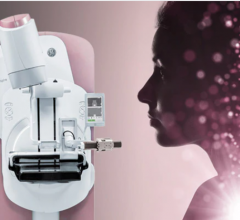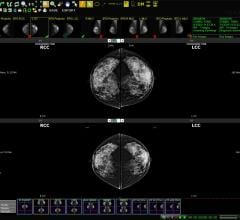April 12, 2007 - Engineers at the Johns Hopkins Urology Robotics Lab recently reported the invention of its PneuStep, an MRI-safe motor that does not require the use of metal or electricity and can safely power remote-controlled robotic medical devices used for cancer biopsies and therapies guided by magnetic resonance imaging.
The new PneuStep motor is made of three pistons connected to a series of gears that are turned by airflow, which is controlled by a computer located in a room close to the MRI. The robot works alongside the patient in the MRI scanner and is controlled remotely by observing the images on the MR. The motor contains fiber optics, which feeds information back to the computer in real time, allowing for both guidance and readjustment.


 July 07, 2021
July 07, 2021 








